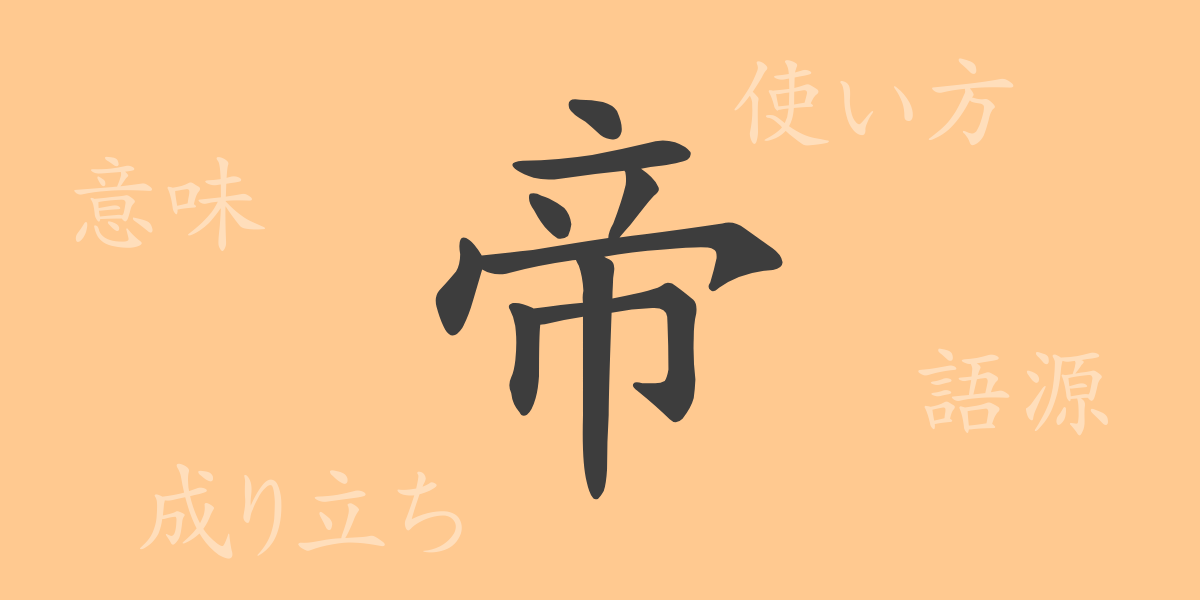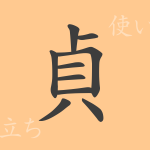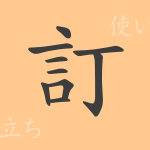From ancient times to the present, kanji deeply embedded in Japanese culture carry histories and stories in each character. ‘帝(てい)’ stands out in history, literature, and everyday conversation, exuding a unique presence. This article explores the hidden history and meaning of ‘帝’, and its allure, offering a gateway into the profound world that a single kanji can embody.
Origins of ‘帝(てい)’
The kanji ‘帝’ originated in ancient China, evolving from pictographs. Ancient inscriptions depicted it with a ‘糸(いと)’ meaning thread at the top, and ‘巾(きん)’ representing a cloth at the bottom, symbolizing a divine garment associated with the heavens. This representation was thought to symbolize ‘Heavenly Emperor’, reflecting a sacred authority connected to the heavens. Over time, ‘帝’ came to denote emperors and sovereigns, representing the highest authority.
Meaning and Usage of ‘帝(てい)’
‘帝’ primarily denotes an emperor or monarch, such as in terms used respectfully like ‘帝王’ or ‘天帝’. It is also metaphorically used to denote the pinnacle in various fields, as in ‘業界の帝王’, referring to a leader in an industry. Thus, ‘帝’ conveys strong connotations of authority and respect.
Readings, Stroke Count, and Radical of ‘帝(てい)’
The kanji ‘帝’ is notable for its unique structure and meaning:
- Readings: On’yomi (Sino-Japanese reading) is ‘テイ’; there is no commonly used Kun’yomi (native Japanese reading).
- Stroke Count: ‘帝’ consists of 9 strokes.
- Radical: The radical is ‘巾(きん)’, related to fabrics or cloth, which plays into its original depiction.
Phrases, Idioms, and Proverbs Using ‘帝(てい)’
‘帝’ appears in various idioms and phrases that reflect its powerful imagery:
- 帝王切開(ていおうせっかい): Known as a cesarean section in medical terms, where a baby is delivered through a surgical incision in the mother’s abdomen.
- 帝国主義(ていこくしゅぎ): Imperialism, a policy or ideology of extending a country’s power through colonization or military force.
- 五帝十王(ごていじゅうおう): Refers to the Five Emperors and Ten Kings, legendary rulers from ancient China’s mythical past.
Conclusion on ‘帝(てい)’
Through this exploration, we’ve seen the historical significance and deep meanings of ‘帝’, and how it’s used in Japanese. The power and dignity embedded in this character convey messages beyond words. From denoting emperors and monarchs to signifying leaders in industries, ‘帝’ is used across a broad spectrum of contexts. Understanding this kanji is a step towards appreciating the richness of Japanese and East Asian linguistic expressions.

























